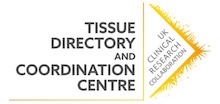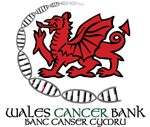Wales Cancer Bank amends ethics to support COVID-19 research
Wales Cancer Bank has released serum samples to enable validation of a test developed by a diagnostics company in Scotland, in partnership with an Irish technology company. This is one of a number of important contributions made by UK biobanks in advancing COVID-19 research.
At the end of March, the UKCRC Tissue Directory and Coordination Centre (TDCC) released a call to action for UK biobanks. This sought their help in sourcing or processing tissue samples to support COVID-19 research. The response to this call was limited as it is estimated that 75-85% of UK biobanks were not operational at this time. Many biobanks were closed or had their staff redeployed due to decisions made by universities, NHS trusts or funders. Wales Cancer Bank (WCB) had stopped sample collection and were operating a skeleton staff rota. Despite this, WCB saw an opportunity to contribute to COVID-19 research.
WCB responded to the call to action, contacting the UKCRC TDCC about their retrospective tissue collections which could be valuable control samples. Control samples are required to validate diagnostic tests. To release these samples, WCB applied for an ethics amendment from the Health Research Authority. The ethics amendment that was approved enabled the release of samples for research unrelated to cancer. It also allowed minor changes to the patient information sheet, to include use of samples in public health emergencies.
Samples collected from patients between January and September 2019 will be used as negative reference samples. These serum samples have been shipped to to a technology company in Ireland, who are working with a diagnostics company in Scotland. The partnership aims to develop a robust laboratory based serological test for Covid-19, for use on a lateral flow (dipstick) device.
Dr Alison Parry-Jones (WCB Operations Director) commented,
‘We were glad that samples collected from cancer patients in Wales could be used in the new research and development activities around COVID-19. Samples are portioned out before freezing and storing so we were able to utilise one portion of the donations knowing that at least one other portion from those patients is still available for cancer research. That way cancer research, which is clearly our main focus, is not disadvantaged by samples being used in this way. The value of an archive of samples has never been so evident.’
If you may have samples that could be of use in COVID-19 research please complete this form.

